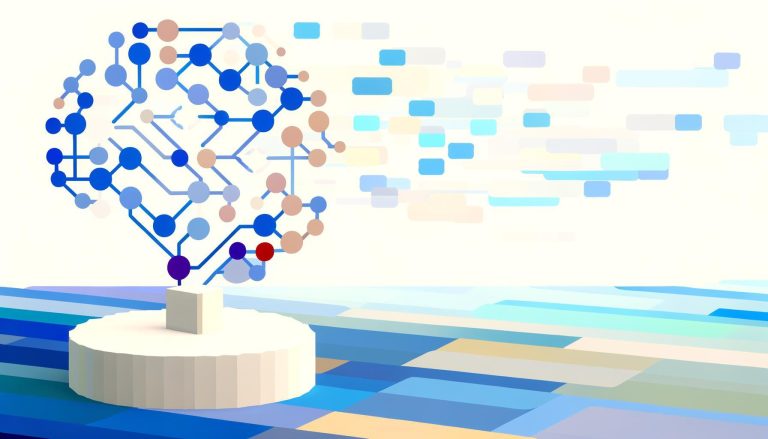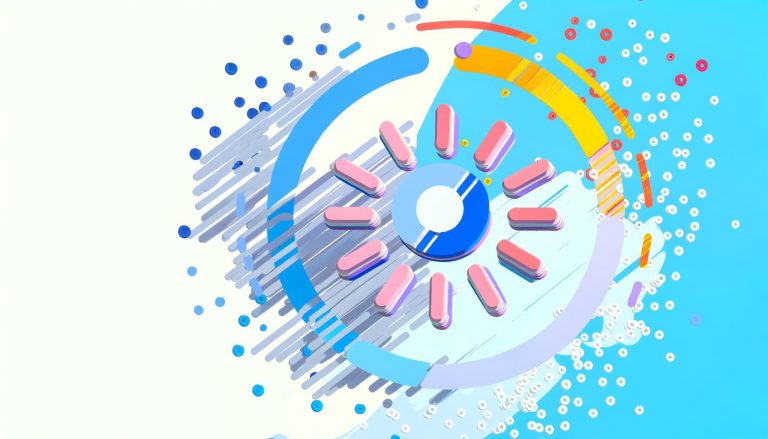In today’s fast-paced, hyper-connected world, the very technology that connects us can also overwhelm us. The sheer volume of information we encounter daily can lead to digital fatigue, affecting our mental and emotional well-being. But there’s a silver lining: Artificial Intelligence (AI) offers promising strategies to alleviate the burden of digital overwhelm. Let’s explore how AI is being harnessed to enhance our information age well-being, providing us with resilience tools that promote a positive outlook on life even amidst the chaos.
Understanding Digital Overwhelm in the Information Age
The explosion of digital content has led to a phenomenon known as digital overwhelm. Our brains are constantly bombarded with information from various channels – emails, social media, news outlets, and more. This constant influx can lead to stress, anxiety, and a diminished capacity to focus on tasks, affecting overall well-being. Recognizing this challenge is the first step in managing it effectively.
The Impact of Information Overload
Information overload can have several adverse effects, such as:
- Stress and Anxiety: The need to keep up with endless notifications and updates can be exhausting.
- Decreased Productivity: Constant digital distractions can hamper concentration and decrease efficiency.
- Decision Fatigue: With numerous choices to make, our ability to make informed decisions gets impaired.
- Reduced Creativity: Overstimulation from information can stifle creative thinking and innovation.
AI Strategies for Managing Digital Overwhelm
AI offers several strategies to help manage the avalanche of digital information and enhance well-being. Leveraging machine learning and natural language processing, these strategies aim to streamline information flow, personalize content consumption, and improve decision-making.
1. Personalized Content Filtering
AI algorithms can learn individual preferences and filter content accordingly, providing only the most relevant information. This personalized approach not only saves time but also reduces the cognitive load on users.
2. Advanced Notification Management
AI can help prioritize notifications, ensuring that users only receive alerts for important information. By analyzing user behavior, AI systems can differentiate between urgent and non-urgent notifications, allowing users to focus on essential tasks without constant interruptions.
3. Mental Health Monitoring and Support
AI-powered apps can monitor user interactions and detect signs of stress or anxiety. These apps provide valuable insights and suggest coping strategies, encouraging mindfulness practices and regular breaks to maintain mental well-being.
4. Enhanced Task Management
AI tools can optimize task management by analyzing work patterns and suggesting the most efficient approaches. Such tools help in prioritizing tasks, setting achievable goals, and managing workloads effectively, reducing the feeling of being overwhelmed.
5. Intelligent Decision Support
AI can assist in decision-making by analyzing vast data sets quickly and providing actionable insights. This support is invaluable for individuals and businesses dealing with complex scenarios, allowing for informed decisions without being bogged down by excessive data.
6. Virtual Companions for Emotional Support
AI-driven virtual companions can provide emotional support through conversation and interaction. They serve as non-judgmental listeners, offering positive reinforcement and guidance, thus contributing to emotional and psychological health.
Practical Tips for Utilizing AI in Daily Life
Integrating AI into everyday routines can significantly enhance our ability to cope with digital overwhelm. Here are some practical tips to get started:
Streamline Your Digital Environment
- Use AI tools to declutter your inbox by filtering and prioritizing emails.
- Leverage AI for calendar management to better organize appointments and deadlines.
- Implement AI-powered content curation platforms to consume information that’s aligned with your interests and needs.
Employ AI-Enhanced Well-Being Apps
- Choose mental health apps that utilize AI to offer personalized mindfulness exercises and stress management techniques.
- Use AI for habit tracking to reinforce positive behavior changes and achieve personal goals.
Opt for AI-Driven Learning Platforms
- Engage with educational platforms that use AI to tailor learning experiences based on your proficiency and pace.
- Utilize AI to access summaries or analyses of extensive articles or reports, saving time and enhancing comprehension.
Conclusion
In the age of information, where digital overwhelm is a growing concern, AI offers robust strategies to help manage the influx of information while safeguarding our well-being. By embracing AI, we can filter out noise, prioritize essential content, and maintain focus and clarity in our daily lives. AI is not just a technological advancement; it’s a partner in our journey toward a balanced and fulfilling life in the digital era.
To further support your journey, consider exploring the Zenora App, which offers mood and habit tracking, goal setting, and personalized counseling sessions through AI-enhanced chat interactions. It’s designed to help you navigate the complexities of modern life with greater ease and resilience.





